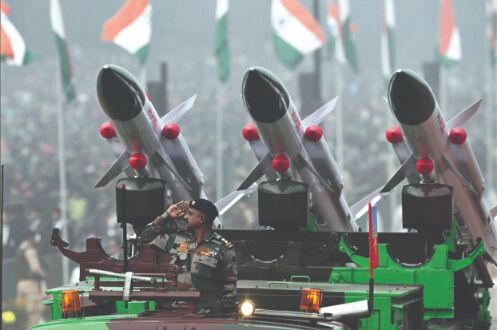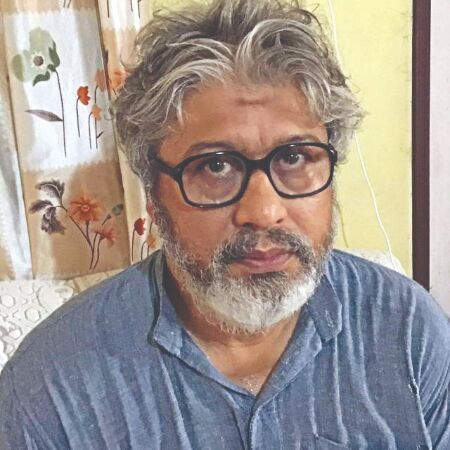Redrawing priorities
In a year of changes and compromises, nations too have been forced to recognise the folly of neglecting health security as a part of national security — a vital lesson for the uncertain future

As on 24th December, India has reported a total of 10,143,974 Coronavirus cases the second highest in the world. Only 119,228 people per million populations have been tested which is one of the lowest figures among the large economies. While China, Bangladesh, and Pakistan have reported only three, 45, and 43 Coronavirus-related death per million populations respectively; India has recorded 106 deaths per million, highest among the South and East Asian countries. These figures suggest that there is a severe dearth of health care facilities to Indian citizens.
According to the Global Health Security Index 2019, most countries are unprepared for outbreaks of major infectious diseases, with Asian countries facing significant risks. Thailand and South Korea were among the best-performing countries in Asia, while India ranked 57th out of 195 countries with a score of 46.5 out of 100, the report said.
Incidentally, in 2019, India emerged among the top three nations in the world in terms of military expenditure. The five biggest spenders were the US ($732 billion), China ($261 billion), India ($71.1 billion), Russia ($65.1 billion) and Saudi Arabia ($61.9 billion). These five countries together accounted for 62 per cent of the global military expenditure.
The present pandemic has flagged the urgent need for a well-functioning healthcare system in India. In the fiscal year 2018, the value of public health expenditure by states and Union Territories together amounted to around 1.58 trillion Indian rupees. This was estimated to be around 1.28 per cent of the country's GDP. Compared to this, India's military expenditure as a percentage of GDP was 2.4 per cent in 2019. According to the National Health Profile 2019 data, there are 7,13,986 government hospital beds available in India. This amounts to 0.55 beds per 1,000 populations.
During this pandemic, it has been observed that there is insufficient global consensus on the meaning of 'health security' and on the scope and intent of national and global programmes designed to ensure it. This lack of agreement has already contributed to the failure of a major international negotiation. To improve government and decision-making processes and enhance institutional capacity and infrastructure for public health, the 73rd World Health Assembly has called on the global health community to ensure that all countries are better equipped to detect and respond to cases of COVID-19 and other infectious diseases. Considering the severity of the situation, the World Health Organisation's 194-member states, including India, are expected to adopt a resolution to strengthen preparedness for health emergencies.
Unfortunately, the World Health Assembly has failed to declare COVID-19 vaccines a global 'public good'. The vaccines are considered as private (intellectual) property and will be subject to patent rights protection as a pharmaceutical product which will give the global pharma majors time-bound monopoly rights to exploit the invention and to stop others from using their vaccine without their consent. However, on public policy grounds, countries can put restrictions on the use of exclusive patent rights granted to pharmaceutical companies. This principle has even been enshrined under the Doha Declaration on the TRIPS Agreement adopted by WTO members in a special Ministerial Declaration at Doha in 2001.
The TRIPS agreement does grant some flexibility in the form of compulsory licensing under Article 31. A grant of compulsory licensing allows the use and sale of patented products by third parties to serve a larger public interest. Several countries have provisions of compulsory licensing in their national patent laws. Due to the pandemic, there exists an urgent need to strike a balance between public health and private individual rights over intellectual properties. Several countries, including India, have provisions of compulsory licensing in their national patents law.
In India, compulsory licensing can be granted to interested parties upon fulfilment of three conditions: (i) the unaffordable price of the invention leading to its non-availability to the public; (ii) if "the reasonable requirements of the public with respect to the patented invention" are not met and, (iii) if such an invention is not worked in the Indian territory.
Usually, such an application to grant compulsory licensing is entertained after the expiration of three years of the grant of patent. However, the Central Government can grant it earlier in cases of national emergency, extreme urgency or cases of public non-commercial use.
Compulsory licensing in India was granted for the first time in 2011 by the Controller General of Patents to a company called Natco Pharma over a compound called 'Sorafenib Tosylate'. To combat the Coronavirus contagion, the Government of India should explore the option of granting the compulsory license to a public sector firm to produce the vaccine at an affordable price to protect the lives of millions of its citizens.
The Government of West Bengal has already taken a commendable initiative by extending the 'Swasthya Sathi' health insurance scheme, initiated in 2016, to cover the entire population of the State. It is a basic health cover for secondary and tertiary care up to Rs 5 lakh per annum per family. However, policymakers must ensure that the primary health care system is not compromised to foot the insurance coverage for the secondary and tertiary health care of all the citizens. Direct free healthcare delivery for all should be the goal of a welfare state.
The WHO (2007) had stated unequivocally that 'functioning health systems are the bedrock of health security'. This should be the guiding principle for future endeavours of all the nations.
Views expressed are personal



